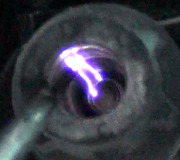Randomly replacing parts is the least effective and most expensive way to diagnose something, as you're finding out. No two sensors are ever exactly the same. When you replace one, the Engine Computer has to relearn its characteristics by comparing its readings to other known conditions. That relearning will not take place when it knows there's a problem with something it is trying to compare to. Now you have multiple sensors sending signal voltages different than what the computer expects to see. That's why it gets worse as you replace more parts. Instead, if you're going to guess at parts, just replace one, then if it doesn't help, put the old one back in and move on.
I'm very much against having a mechanic tell you what to replace. He can intentionally tell you the wrong part to "punish" you for not just letting him diagnose it, or he can unintentionally tell you the wrong part because he is guessing from a lack of diagnostic test results. Unless there's a real common pattern failure that is seen all the time, guessing at parts based on symptoms is a real bad idea.
As far as the mass air flow sensor and fuel pump, it's not likely both failed at the same time. It IS possible for the pump to be not be building enough pressure but your description of the symptoms doesn't really fit.
The best approach is to let your mechanic diagnose it, but first, for a quick check, pull the vacuum hose off the fuel pressure regulator and check if there's raw fuel in it. If it's wet, replace the regulator.
Friday, July 6th, 2012 AT 3:41 AM



